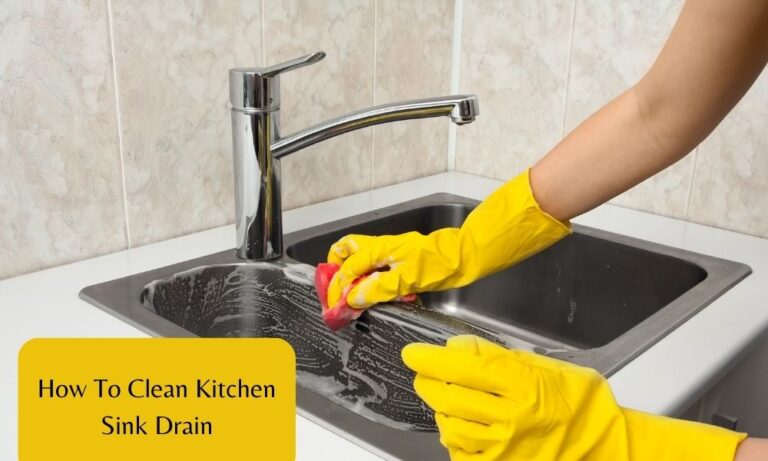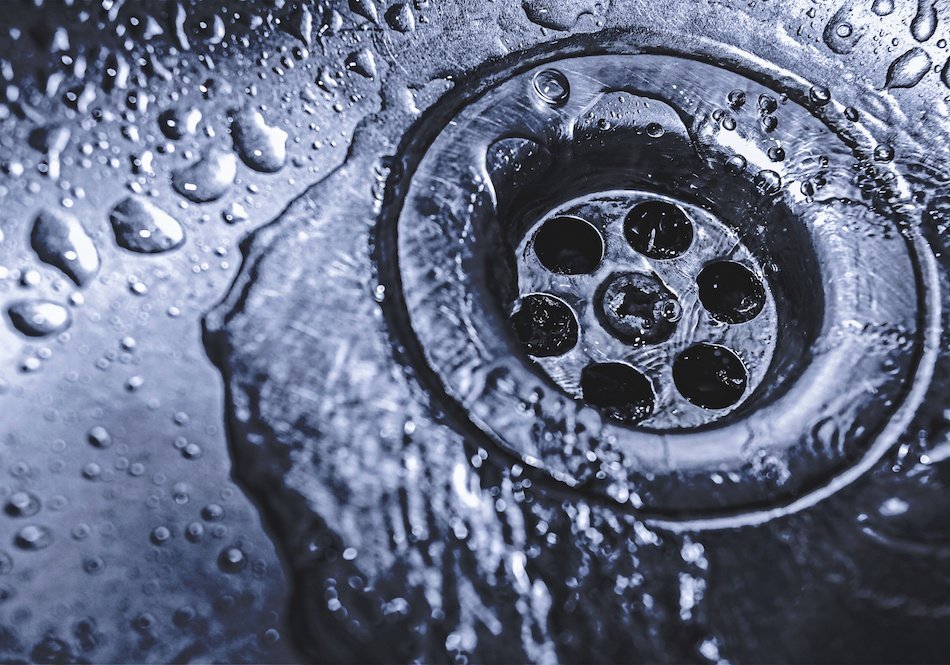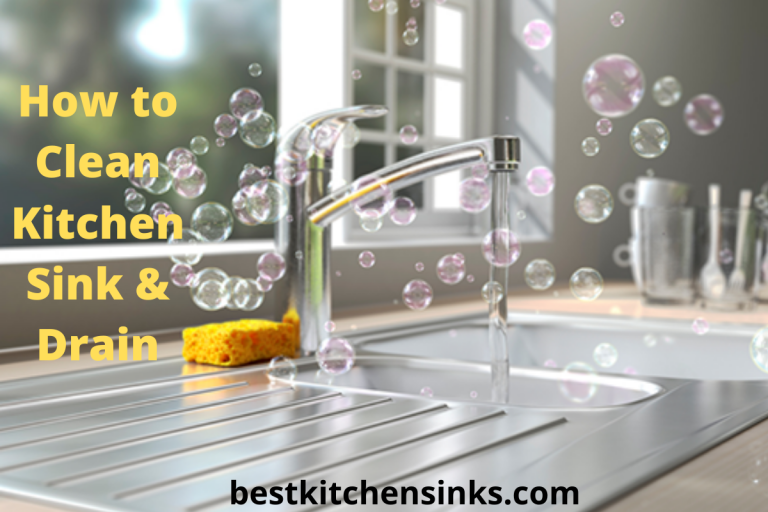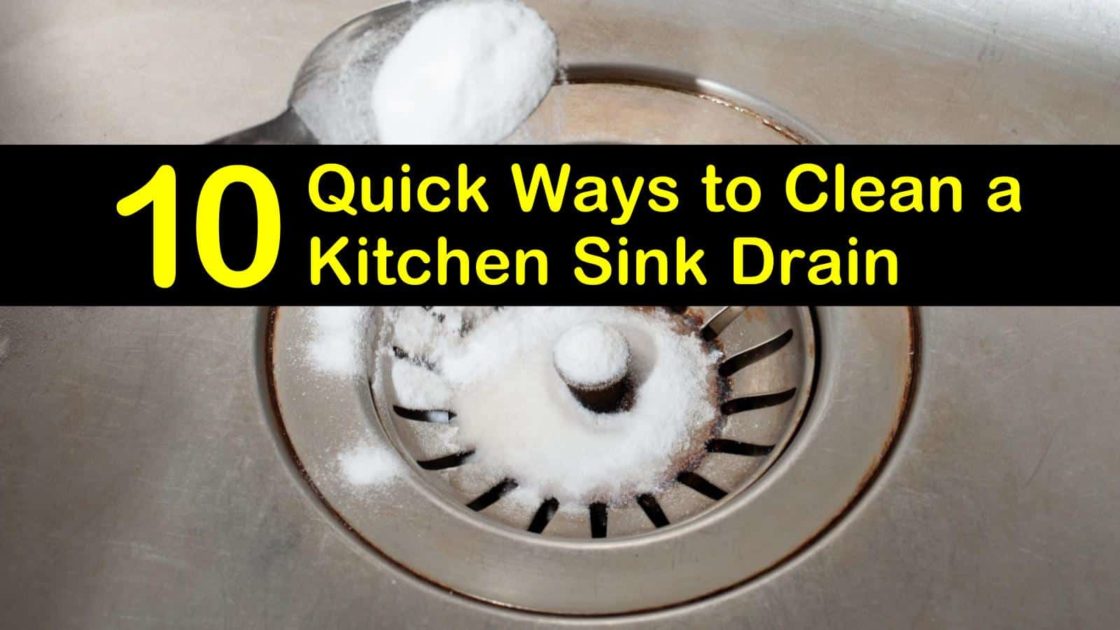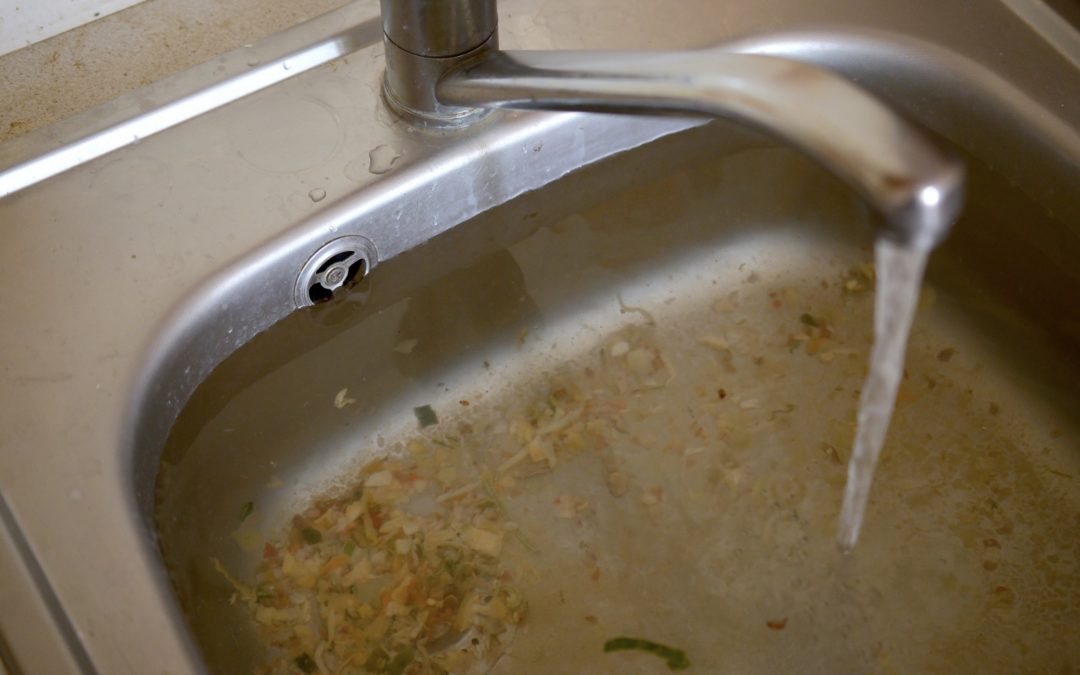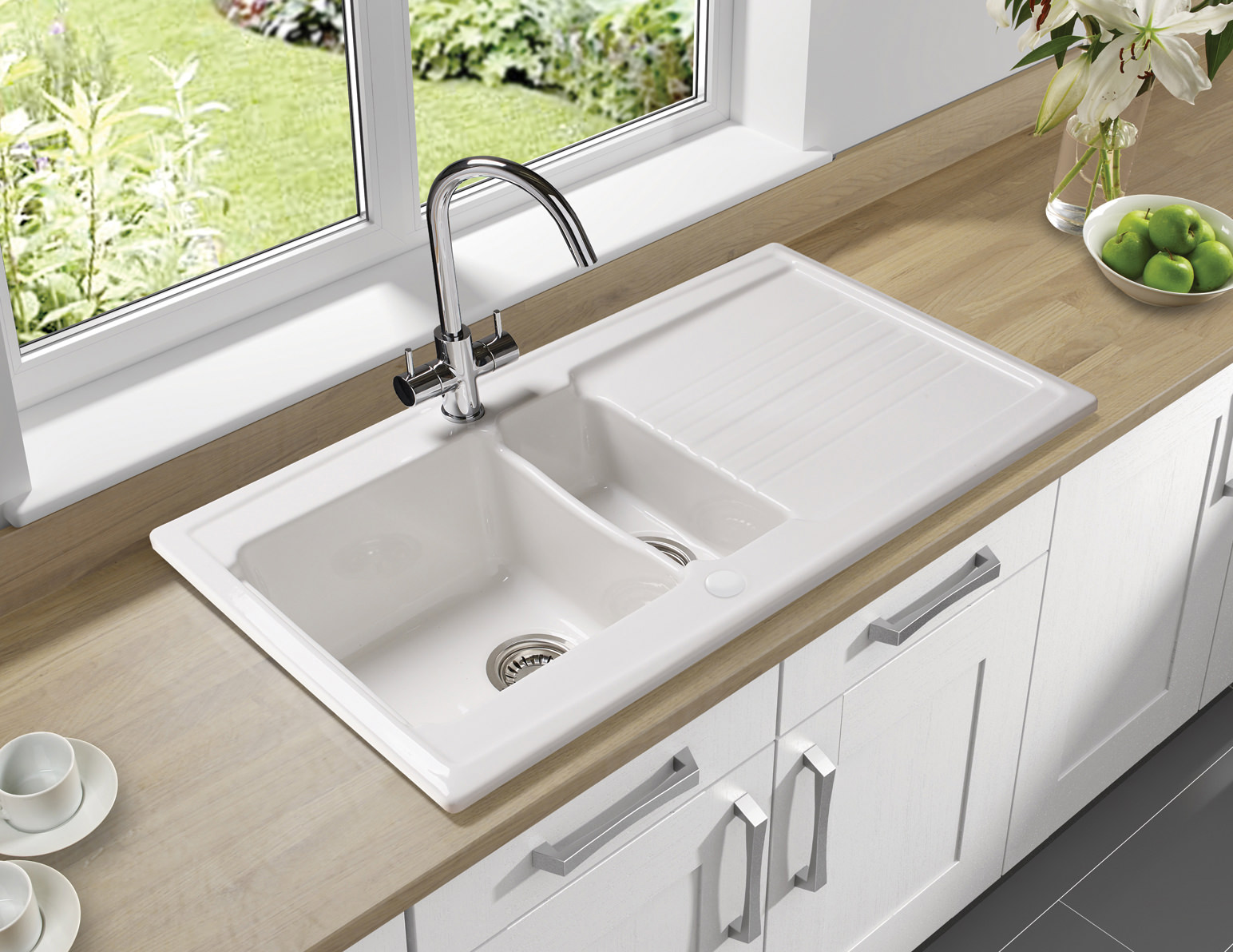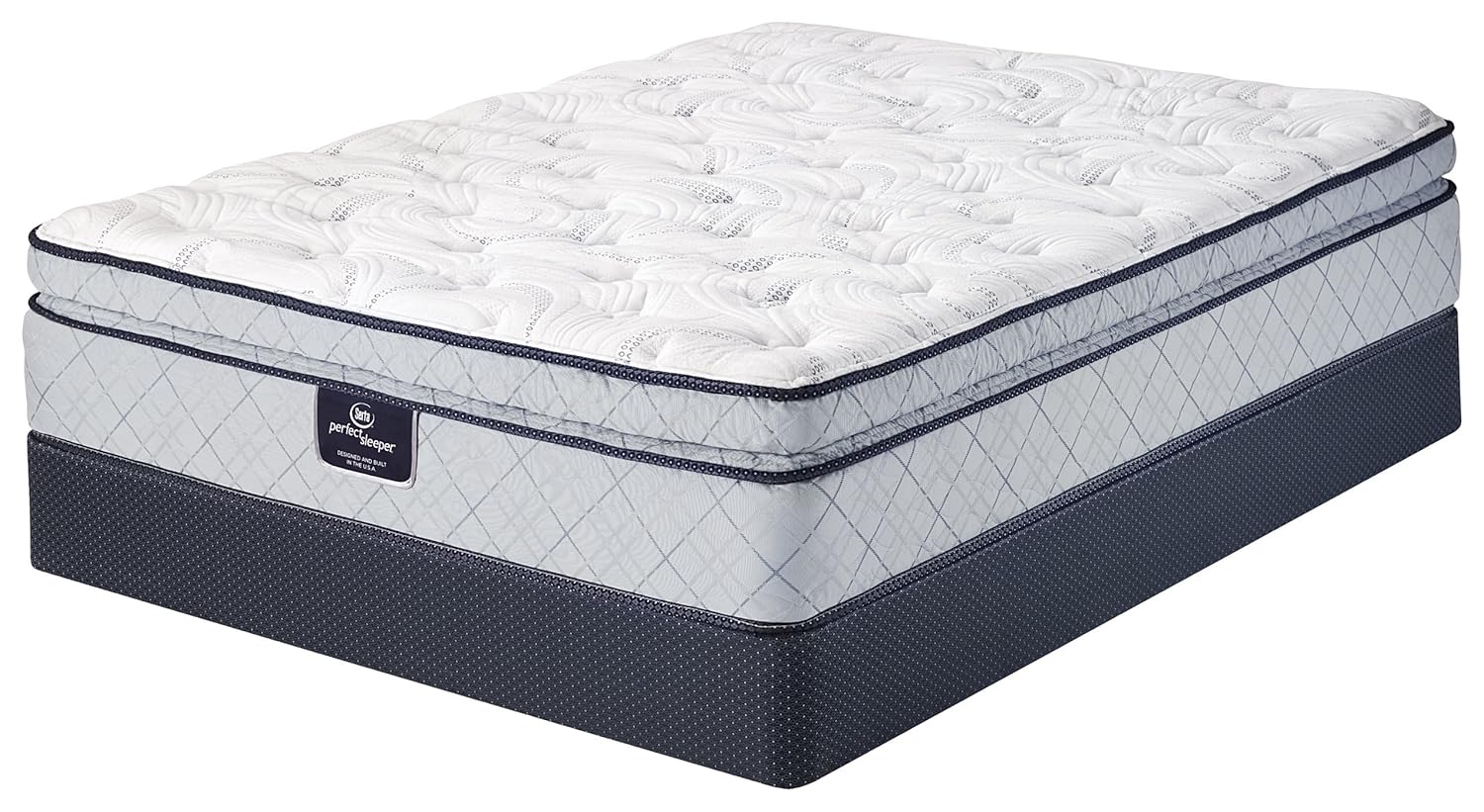1. Causes of a Bad Smell From a Kitchen Sink Drain
There's nothing worse than walking into your kitchen and being hit with a foul odor coming from your sink drain. Not only is it unpleasant, but it can also be embarrassing if you have guests over. But what exactly causes this bad smell to emanate from your kitchen sink drain?
The most common cause of a smelly kitchen sink drain is a buildup of food particles, grease, and other debris. These materials can get stuck in the pipes and create a breeding ground for bacteria, which leads to the unpleasant smell. Another potential cause could be a clog in the drain, trapping food and causing it to rot and produce a stench.
If you notice a bad smell coming from your kitchen sink drain, it's essential to address the issue promptly to avoid further problems and embarrassment.
2. How to Get Rid of a Bad Smell in Your Kitchen Sink Drain
Now that you know what causes a bad smell in your kitchen sink drain, it's time to tackle the issue. The good news is that there are several DIY solutions that you can try before calling a professional plumber.
One simple solution is to pour a mixture of hot water and baking soda down the drain. The hot water will help dissolve any built-up grease and debris, while the baking soda will neutralize any foul odors. You can also try pouring a cup of vinegar down the drain and letting it sit for 15-20 minutes before flushing it out with hot water. Vinegar has natural antibacterial properties that can help eliminate any lingering bacteria causing the smell.
If these DIY solutions don't work, it may be time to call in a professional to assess the issue and provide a more effective solution.
3. Common Reasons for a Smelly Kitchen Sink Drain
Other than food buildup and clogs, there are a few other common reasons for a bad smell coming from your kitchen sink drain. One of these reasons could be a damaged or faulty garbage disposal. If your garbage disposal is not working correctly, food particles can become trapped and rot, causing a foul odor.
Another possible cause could be a damaged or leaking pipe. If a pipe is cracked or broken, it can allow sewer gases to escape, leading to a bad smell. If you suspect this may be the issue, it's best to call a professional plumber to inspect and repair the pipes.
Lastly, a dry P-trap could also be the culprit. The P-trap is a U-shaped pipe under the sink that traps water to prevent sewer gases from entering your home. If the P-trap dries out, it can allow these gases to escape and cause a bad smell. Simply running water down the drain for a few minutes can refill the P-trap and eliminate the odor.
4. DIY Solutions for a Stinky Kitchen Sink Drain
If you're dealing with a smelly kitchen sink drain, there are a few simple DIY solutions that you can try before calling in the professionals.
One option is to use a plunger to remove any clogs that may be causing the bad smell. Simply place the plunger over the drain and push down and up a few times to create a vacuum and dislodge the clog. Another solution is to use a drain snake to remove any built-up debris in the pipes. Insert the snake into the drain and twist it to grab onto any food particles or debris, then pull it out.
Additionally, you can try flushing the drain with a mixture of hot water and dish soap. The hot water will help dissolve any buildup, while the dish soap will help cut through grease and eliminate any odors.
5. Tips for Preventing a Bad Smell in Your Kitchen Sink Drain
The best way to deal with a bad smell from your kitchen sink drain is to prevent it from happening in the first place. Here are a few tips to help keep your kitchen sink drain smelling fresh and clean:
- Avoid pouring grease or oil down the drain. Instead, dispose of it in a separate container and throw it in the trash.
- Use a drain cover to catch food particles and prevent them from going down the drain.
- Regularly clean your garbage disposal by grinding ice cubes and lemon peels to eliminate any buildup and odors.
- Run hot water down the drain after each use to help flush out any debris.
By following these simple tips, you can prevent a bad smell from permeating your kitchen and keep your sink drain smelling fresh and clean.
6. Natural Remedies for a Foul Odor in Your Kitchen Sink Drain
If you prefer to use natural remedies rather than harsh chemicals, there are a few options for getting rid of a bad smell in your kitchen sink drain.
You can try pouring a cup of baking soda down the drain, followed by a cup of vinegar. Let the mixture sit for 15-20 minutes before flushing it out with hot water. Another natural remedy is to freeze white vinegar in an ice cube tray and run a few cubes down the drain once a week. The vinegar will help eliminate any odors, and the ice will help clean the blades of your garbage disposal.
You can also try using essential oils to freshen up your kitchen sink drain. Mix a few drops of your favorite essential oil with a cup of baking soda and sprinkle it down the drain. Let it sit for a few minutes before flushing it out with hot water.
7. Professional Solutions for a Smelly Kitchen Sink Drain
If DIY solutions aren't working, or you're dealing with a persistent bad smell, it may be time to call in a professional plumber. They will be able to assess the issue and provide a more effective solution.
One potential solution could be hydro jetting, where high-pressure water is used to clear out any buildup and clogs in the pipes. Another option could be replacing the P-trap or damaged pipes, if necessary.
It's important to address the issue promptly to prevent any further damage and maintain a clean and pleasant-smelling kitchen.
8. How to Clean and Maintain Your Kitchen Sink Drain to Avoid Bad Smells
The best way to avoid a bad smell from your kitchen sink drain is to keep it clean and well-maintained. Here are a few tips to help you do just that:
- Regularly clean your sink and drain with hot water and soap to prevent any buildup of food particles.
- Once a week, pour a mixture of hot water and vinegar down the drain to keep it clean and fresh.
- Avoid using harsh chemicals to clean your sink and drain, as they can damage the pipes and cause more problems in the long run.
- Consider installing a garbage disposal if you don't already have one, as this can help break down food particles and prevent clogs.
By following these tips, you can keep your kitchen sink drain in good condition and avoid any unpleasant smells.
9. Signs That Your Kitchen Sink Drain May Need to Be Replaced
While regular maintenance and cleaning can help prevent issues with your kitchen sink drain, there may come a time when it needs to be replaced entirely.
Some signs that your kitchen sink drain may need to be replaced include frequent clogs that can't be cleared with DIY solutions, cracks or damage to the pipes, and a persistent bad smell even after trying various remedies.
If you notice any of these signs, it's best to call a professional plumber to assess the issue and determine if a replacement is necessary.
10. Dealing with a Persistent Bad Smell From Your Kitchen Sink Drain
If you've tried all of the above solutions and are still dealing with a persistent bad smell from your kitchen sink drain, it may be time to call in the professionals.
A plumber will be able to thoroughly inspect your pipes and drains, identify the source of the odor, and provide a more effective solution. They may also recommend regular maintenance and cleaning to prevent the issue from recurring in the future.
Remember, it's essential to address a bad smell from your kitchen sink drain promptly to avoid further problems and maintain a clean and fresh-smelling kitchen.
In conclusion, a bad smell from your kitchen sink drain can be caused by various factors, including food buildup, clogs, damaged pipes, and a dry P-trap. However, with the right solutions and maintenance, you can eliminate the odor and keep your kitchen smelling fresh and clean. Whether it's through DIY solutions, natural remedies, or professional assistance, don't let a bad smell from your kitchen sink drain ruin your day. Take action and enjoy a pleasant-smelling kitchen once again.
Addressing the Issue of a Bad Smell from Your Kitchen Sink Drain

Understanding the Cause of the Odor
 When a foul odor starts emanating from your kitchen sink drain, it can be quite unpleasant and overwhelming. The first step in addressing this issue is to understand the cause of the odor. There are a few different factors that can contribute to a bad smell coming from your kitchen sink drain. One of the most common reasons is a build-up of food particles and grease in the drain pipes. These can start to decompose and produce a foul odor. Another possible cause is a clog in the drain, which can trap food and other debris and cause it to rot and emit a bad smell. Additionally, bacteria and mold can also grow in damp, dark places such as your kitchen sink drain, leading to an unpleasant odor.
When a foul odor starts emanating from your kitchen sink drain, it can be quite unpleasant and overwhelming. The first step in addressing this issue is to understand the cause of the odor. There are a few different factors that can contribute to a bad smell coming from your kitchen sink drain. One of the most common reasons is a build-up of food particles and grease in the drain pipes. These can start to decompose and produce a foul odor. Another possible cause is a clog in the drain, which can trap food and other debris and cause it to rot and emit a bad smell. Additionally, bacteria and mold can also grow in damp, dark places such as your kitchen sink drain, leading to an unpleasant odor.
Taking Preventative Measures
 To prevent a bad smell from your kitchen sink drain, it is important to take some preventative measures. One of the most effective ways is to regularly clean your sink drain using an enzyme-based cleaner. These cleaners contain bacteria and enzymes that break down food particles and grease, eliminating the source of the odor. You can also pour boiling water down the drain once a week to help prevent any build-up. Another important step is to make sure you are properly disposing of food scraps and not putting them down the drain, as this can contribute to clogs and bad smells.
To prevent a bad smell from your kitchen sink drain, it is important to take some preventative measures. One of the most effective ways is to regularly clean your sink drain using an enzyme-based cleaner. These cleaners contain bacteria and enzymes that break down food particles and grease, eliminating the source of the odor. You can also pour boiling water down the drain once a week to help prevent any build-up. Another important step is to make sure you are properly disposing of food scraps and not putting them down the drain, as this can contribute to clogs and bad smells.
Dealing with the Issue
 If you already have a bad smell coming from your kitchen sink drain, there are a few steps you can take to address the issue. First, try pouring a mixture of baking soda and vinegar down the drain, followed by boiling water. This can help to break down any build-up or clogs in the pipes. Another option is to use a plunger to try and remove any blockages. If these methods do not work, you may need to call a professional plumber to address the issue.
If you already have a bad smell coming from your kitchen sink drain, there are a few steps you can take to address the issue. First, try pouring a mixture of baking soda and vinegar down the drain, followed by boiling water. This can help to break down any build-up or clogs in the pipes. Another option is to use a plunger to try and remove any blockages. If these methods do not work, you may need to call a professional plumber to address the issue.
Consider Upgrading Your Sink Drain
 If you find that you are frequently dealing with a bad smell from your kitchen sink drain, it may be time to consider upgrading to a new sink and drain system. Many modern sinks come with built-in garbage disposals and self-cleaning mechanisms, making it easier to prevent and eliminate bad smells. Additionally, investing in a high-quality sink drain with proper ventilation can also help to prevent the build-up of food particles and bacteria, keeping your sink smelling fresh.
In conclusion, a bad smell coming from your kitchen sink drain can be a nuisance, but it is important to address the issue promptly to prevent it from becoming a bigger problem. By understanding the causes, taking preventative measures, and considering an upgrade if necessary, you can keep your kitchen smelling clean and fresh.
If you find that you are frequently dealing with a bad smell from your kitchen sink drain, it may be time to consider upgrading to a new sink and drain system. Many modern sinks come with built-in garbage disposals and self-cleaning mechanisms, making it easier to prevent and eliminate bad smells. Additionally, investing in a high-quality sink drain with proper ventilation can also help to prevent the build-up of food particles and bacteria, keeping your sink smelling fresh.
In conclusion, a bad smell coming from your kitchen sink drain can be a nuisance, but it is important to address the issue promptly to prevent it from becoming a bigger problem. By understanding the causes, taking preventative measures, and considering an upgrade if necessary, you can keep your kitchen smelling clean and fresh.



:max_bytes(150000):strip_icc()/sink-pipe-under-wash-basin-119001607-6f28aec4c66944efb7a9a38cb622ab8b.jpg)

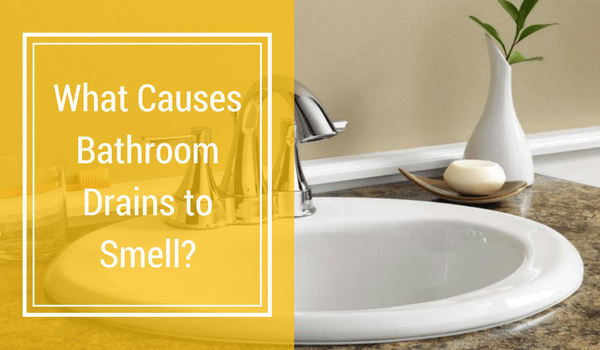

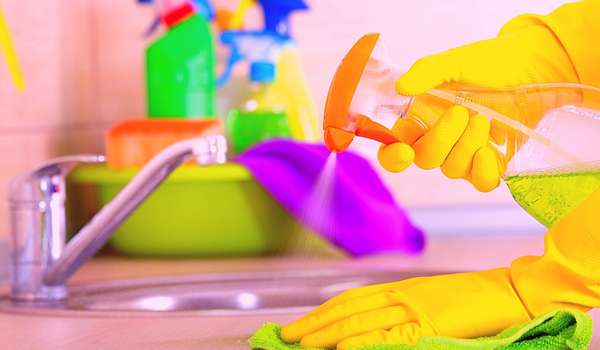



.png)

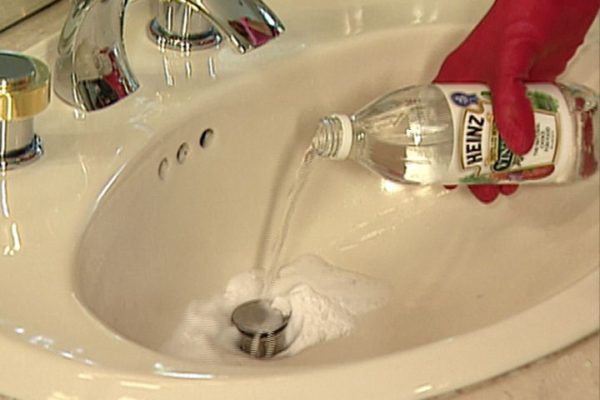

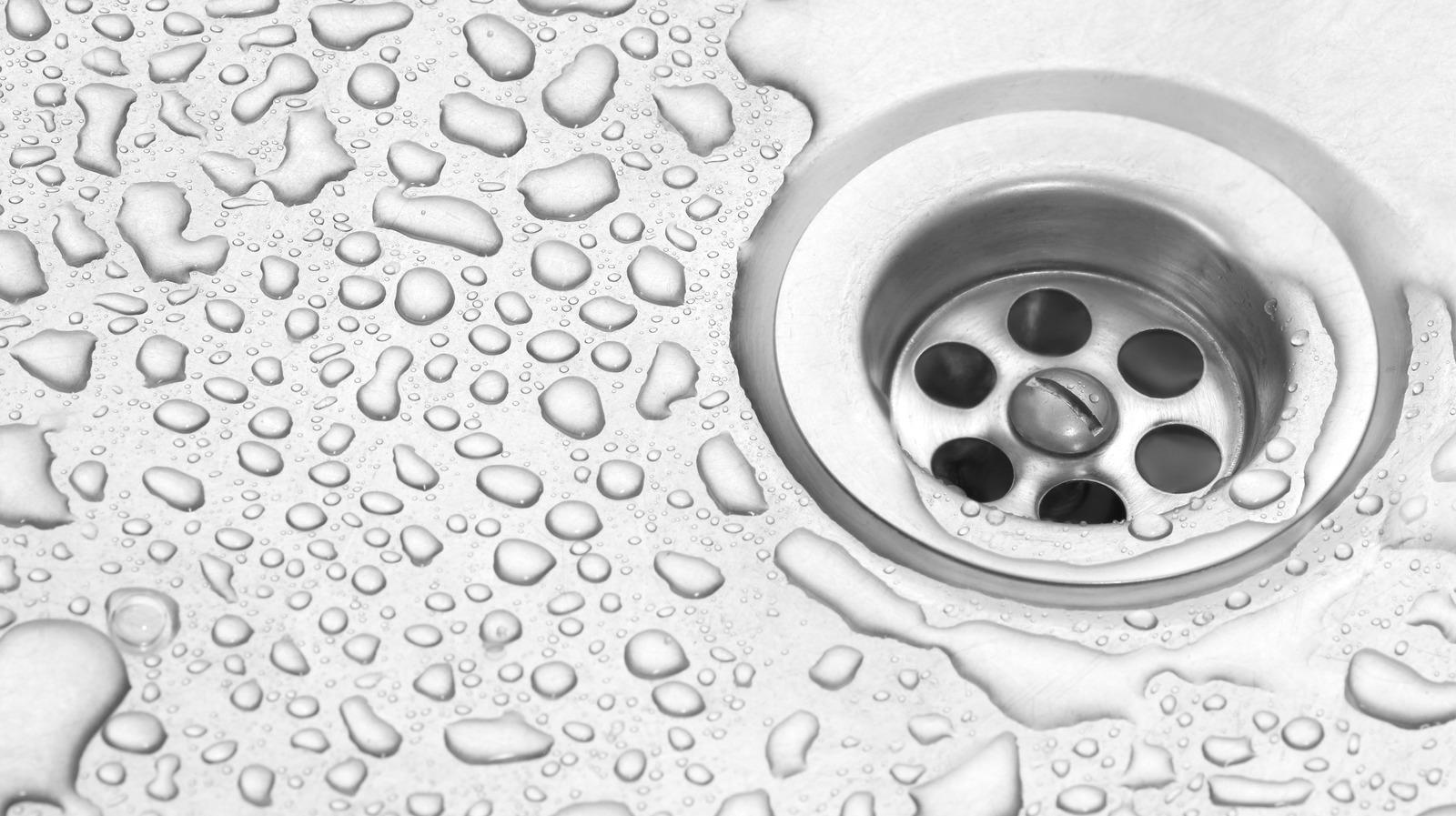





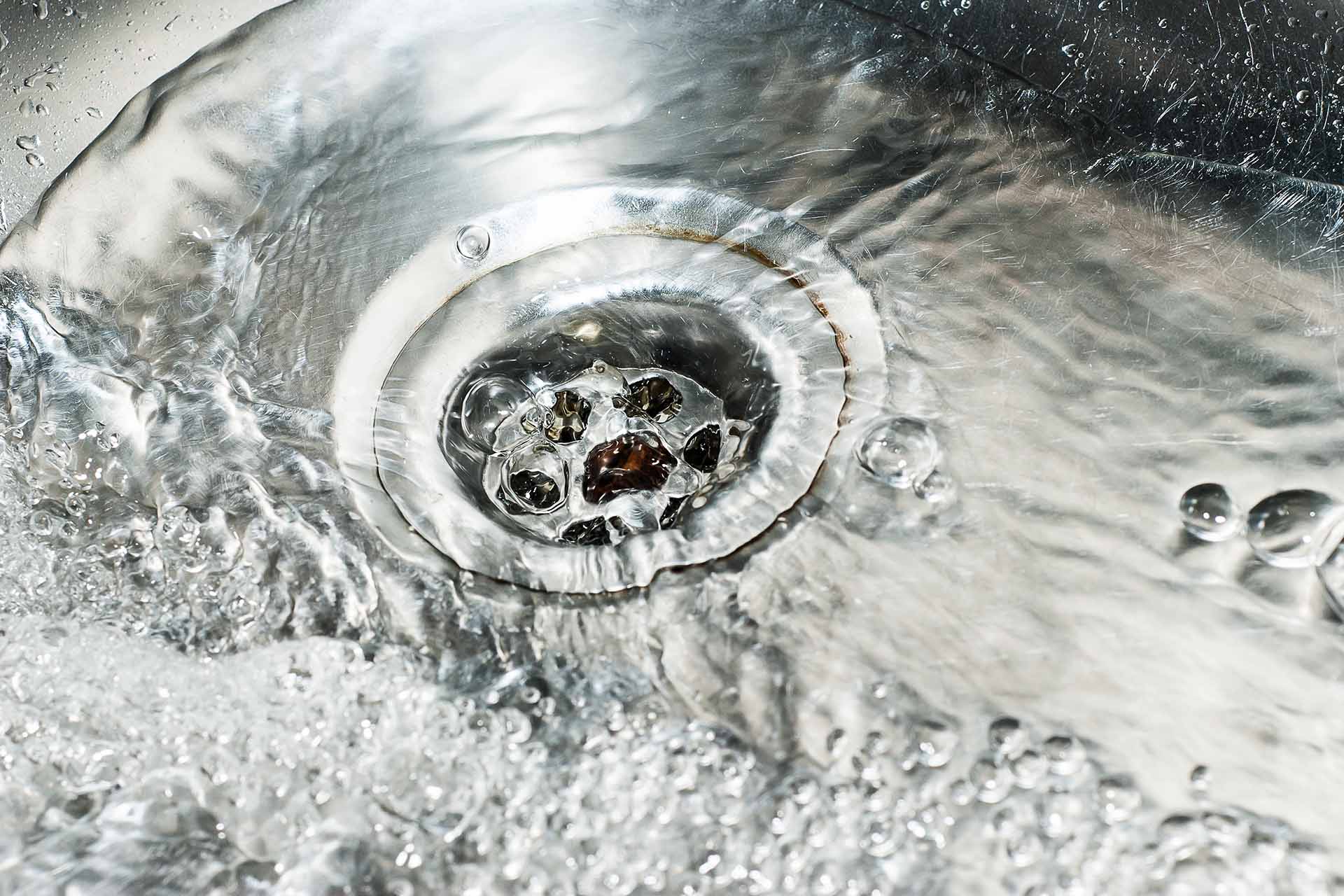








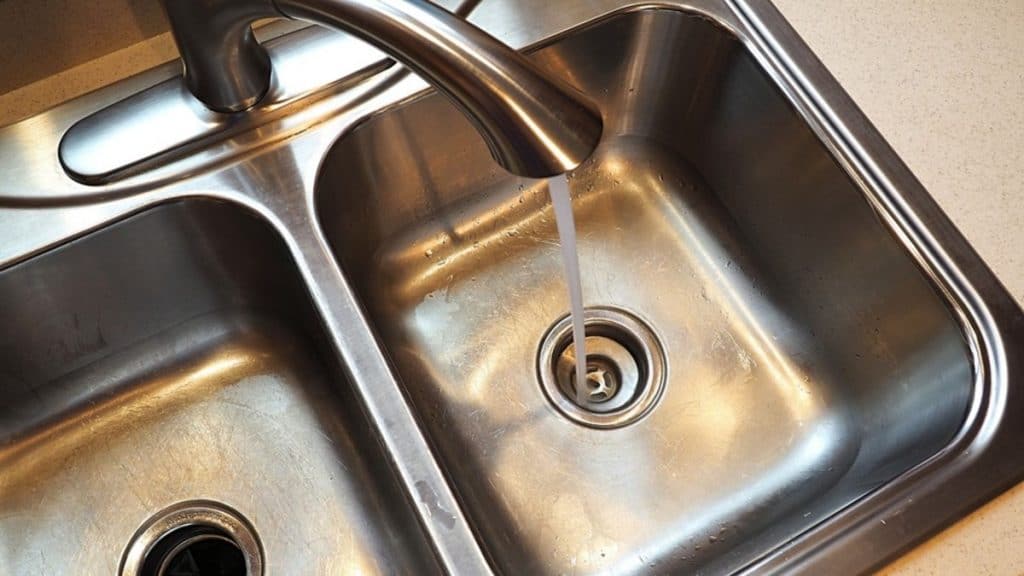


:max_bytes(150000):strip_icc()/how-to-clean-a-stinky-drain-5207454-hero-9d4668b2d4f94166b0d1908a9a8e0dbb.jpg)

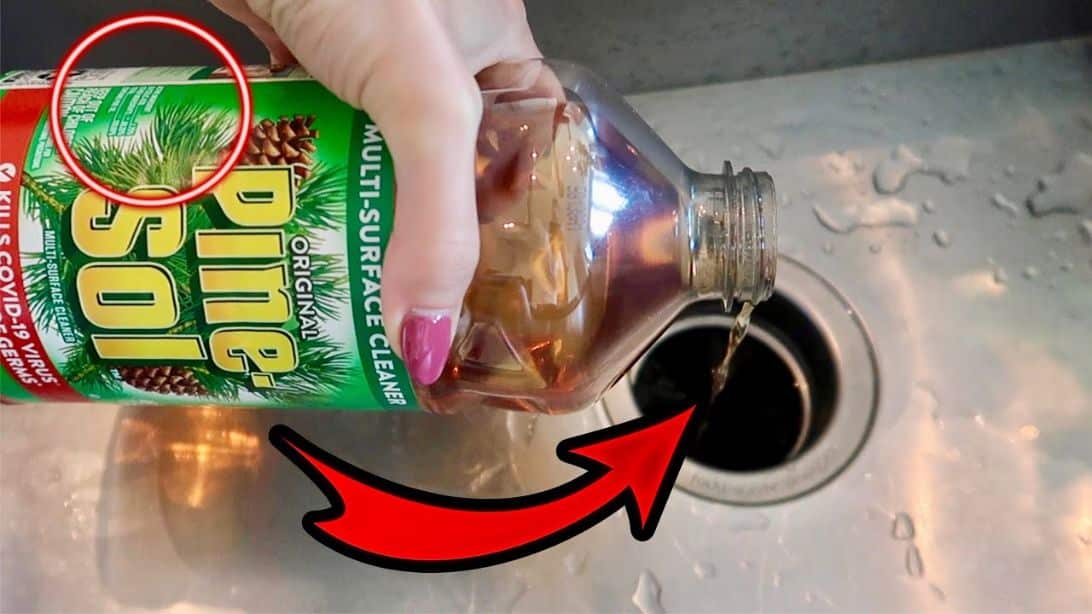






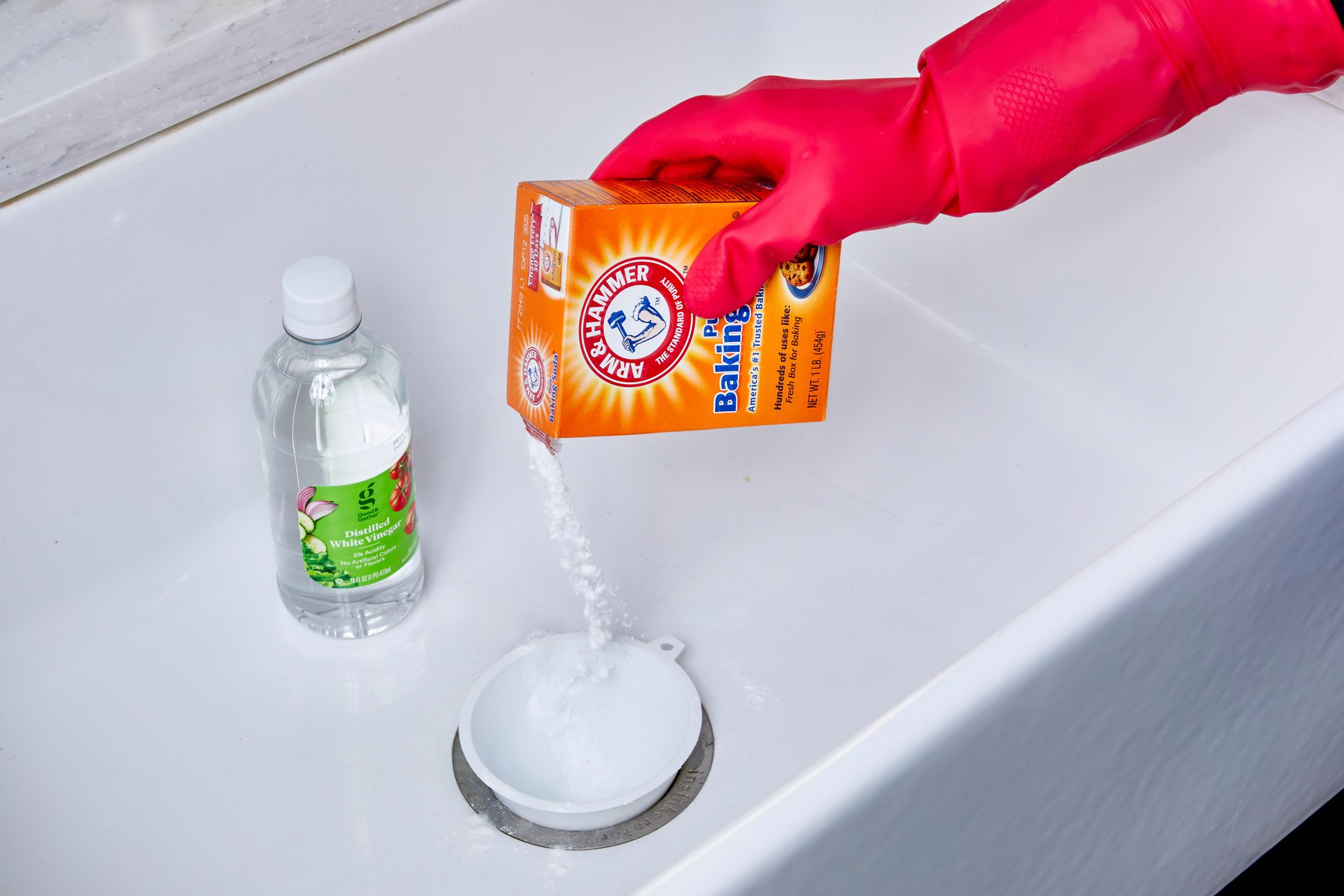
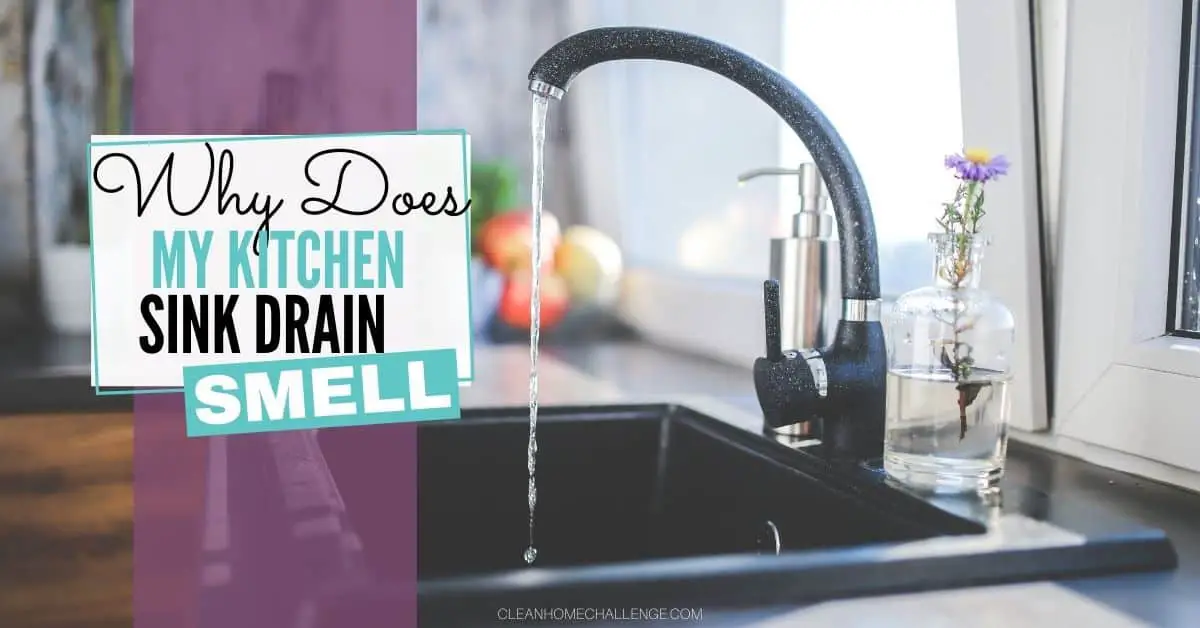
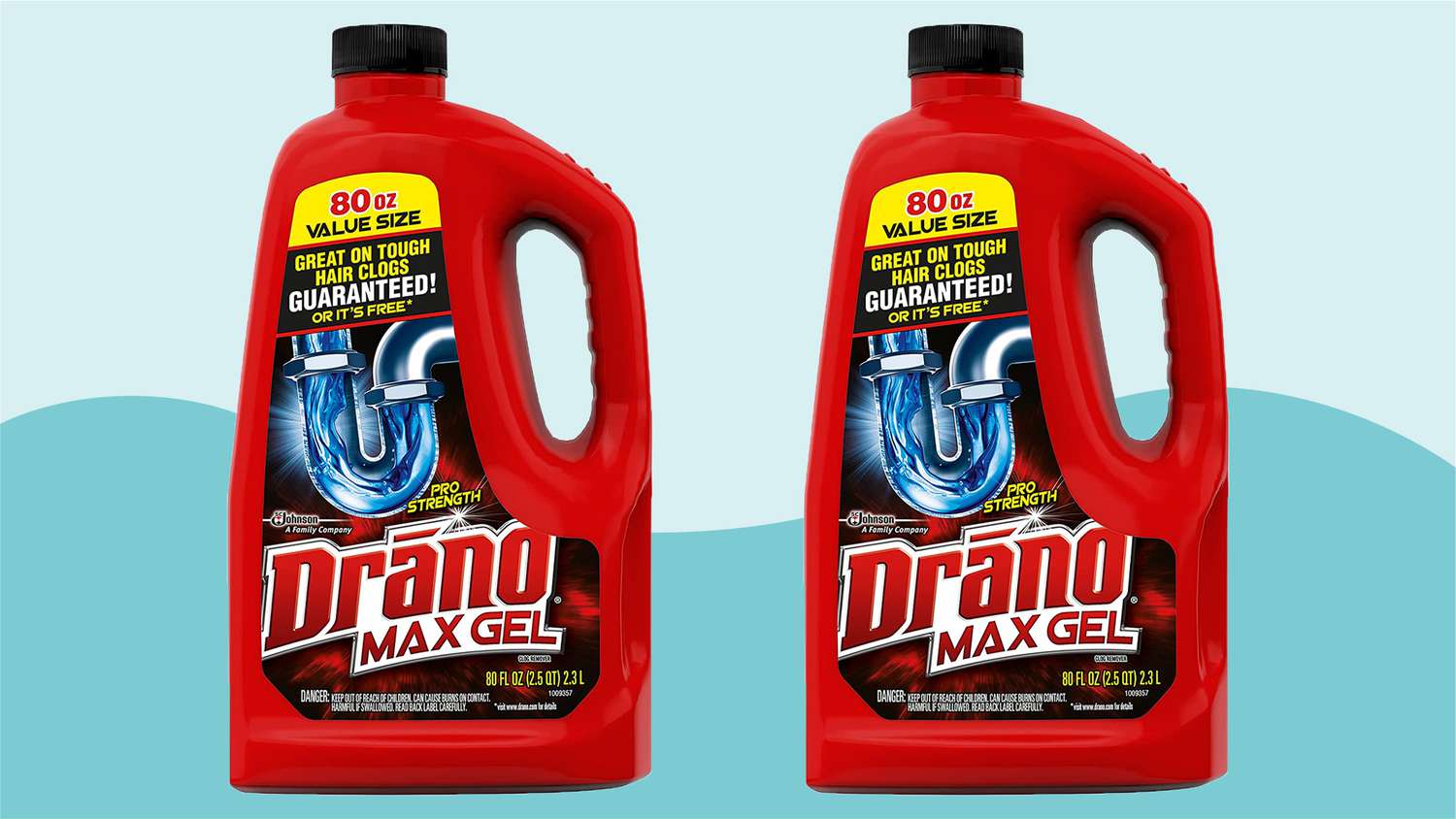
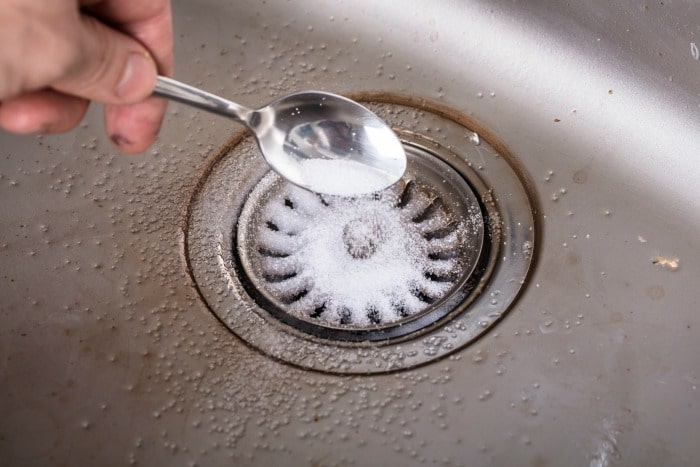




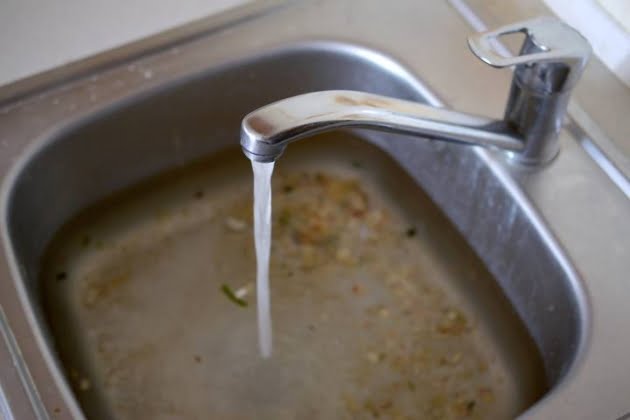













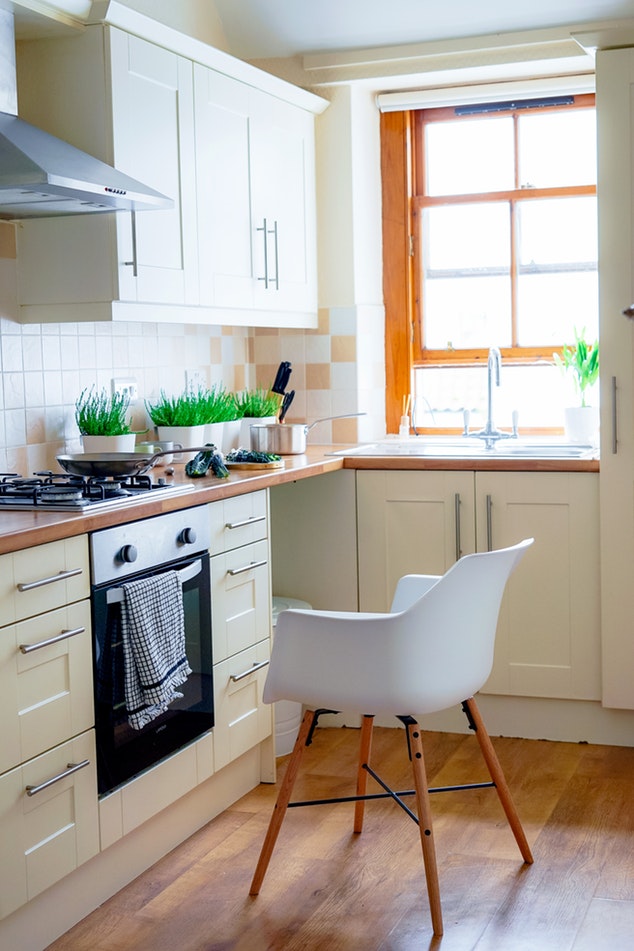

:max_bytes(150000):strip_icc()/how-to-clean-a-kitchen-sink-and-drain-02-5660035-7a630bc36f2c401bbe412bbe85937ff3.jpg)
